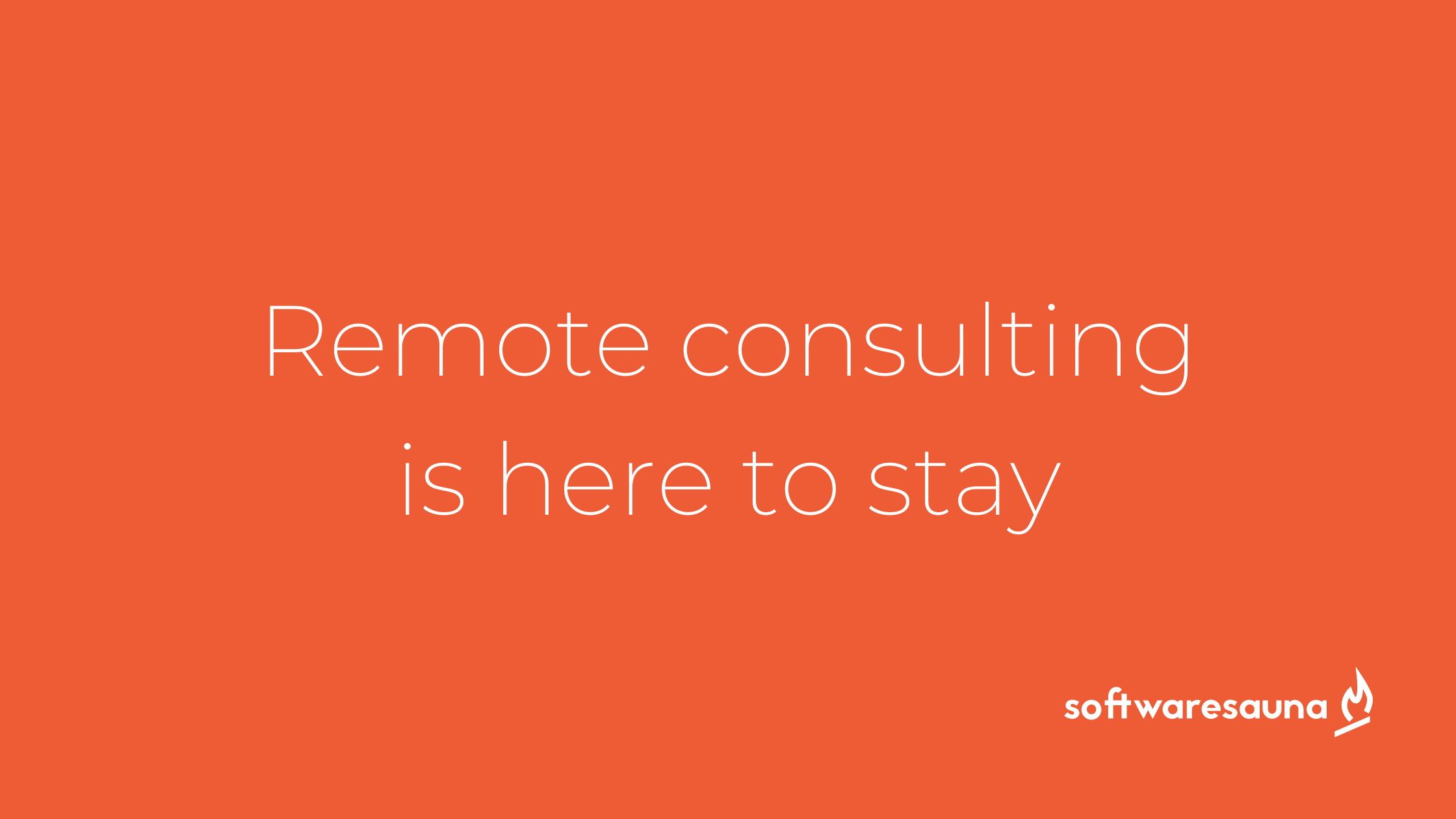Remote consulting is here to stay

Change is the only constant in business. When things change unexpectedly, businesses have turned towards external help for decades. Organizations have been using external consultants to boost their business and quickly solve their acute business challenges since the industrial revolution. Some would argue that consultants are the GPS or safety belt for companies when they need to take the next step towards their goals. Consulting industry has always been among the first industries to embrace change. To keep moving forward. To transform. Change for the better is what consultants hope to achieve and create. If consultants are among the first to adopt new technologies and ways of working, surely they will bring this forward for the benefit of their customers?
At the end of the day, what consultants actually do is solve critical business challenges. As digital transformation progressed and industries were going through waves of changes. In uncertain times, leaders turned to their trusted advisors for guidance. Consultants were called to help their clients navigate through the storm that was the Covid-19 pandemic.
Evolution of customer requirements
During the pandemic there have been cultural and economical disruptions that have sparked a transformation of the consulting industry. According to studies conducted in the US, the software consulting industry had been growing approximately 12% annually even during the pandemic. General population wanted more and better digital products and services. Most companies were quick to understand this and started ramping up their digital development with expensive recruitment programs and hiring software consultants in order to:
- Rapidly increase the output and quality of development teams
- Bring in new ideas and drive for existing employees
- Manage the workload and responsibilities of key personnel
- Attract, support and develop new talent
- Manage recruitment risks
Services turned digital, but ways of working had to change also. Suddenly most of the working population was forced to work remotely and better digital solutions were required to enable this. Soon software development became the top priority of many industries. Businesses needed to change, but existing development teams were soon overwhelmed. So along came software consultants, who could provide instant help to struggling development teams. Employees and companies alike were embracing the change of working remote and relying on rapidly evolving digital services.
Transformation of the consulting industry
However, high demand for software consulting during the pandemic impacted salaries and prices dramatically. Times of uncertainty followed as Russia’s aggression in the Ukraine created an all time high inflation and energy prices. General costs have gone up significantly, but the need for digital development has not decreased. Seems that there is a need for yet another change in the consulting industry. This time the consultants are the ones who need to work remotely. When expertise and precise skillset is what organisations require, surely the location of the consultant is of no relevance anymore. Accompanied with a broader set of expertise to choose from and lower costs, now truly is the time to boost the output of development teams by adding remote consulting to the mix.
Due to covid lockdowns, many companies were forced to downgrade the size of their offices. Some employees may still want to work completely remote, though companies can ponder whether their employees have lost certain social advantages that come from working in the office along with their co-workers. Hence different forms of hybrid work are emerging.
Embrace talent, not location
Hybrid and remote consulting is implemented and embraced by many. And they are steadily beginning to be available for software consultants too. By working remotely software consultants can still support hybrid work and achieve most of the business benefits of working in the premises along with:
- Higher productivity by including expertise in your tech team
- Cost savings
- Flexibility by increasing your access to talent
- Diverse and inclusive workforce encourages innovation
If an organisation needs specific skills or expertise for a certain time period, hiring an experienced consultant has been and still is the best solution. Hiring is always risky and the more demanding the requirements, the more time is typically required. Now instead of surfing in the local contested talent pool, companies can dive into the global ocean of consulting expertise. Surely this is for the benefit of all parties involved?





